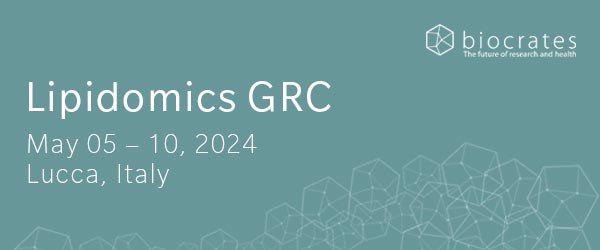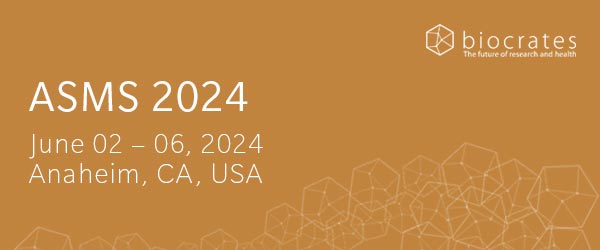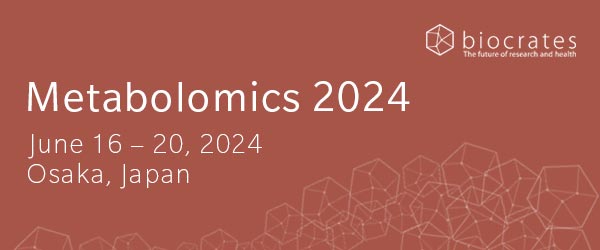A globally relevant metabolomics event in Munich
The Munich Metabolomics Symposium has been designed as a meeting where technologists and applied researchers from the Munich area with an interest in metabolomics can meet and interact. In the last few years, the event has grown to one with trans-regional attendance. Due to the pandemic, the 7th edition in 2020 had to take place virtually, which meant we could include the global metabolomics community.The 8th edition of the event on 12 November 2021 was planned as a hybrid event – with the possibility for Munich-based participants to meet at “Klinikum rechts der Isar” and for the global audience to join via live stream. A surge in Covid-19 cases made it impossible to meet in person, but it did not stop the event from being highly successful, with an audience that would have filled the auditorium four times over.
Here, we will try to fulfil the daunting task of summarizing the meeting in a way that does justice to all of the insightful presentations. Speakers included nine men and nine women, spanning every possible stage of a scientific career.
In line with the symposium’s title, the bulk of the talks addressed clinical applications of metabolomics, with a few basic research and methodological talks sprinkled in for context.
Keynote
The meeting started with a well-received keynote lecture by Hannelore Daniel, who tried to make sense of the vast and often conflicting findings from microbiome studies. More importantly, the lecture discussed key prerequisites for high quality in microbiome research, such as collecting information about stool frequency, acknowledging that absolute, and not just relative abundance, might matter or that important physiological differences must be considered when translating findings from animal models, especially mouse models, and human studies. Finally, the contribution of the microbiome to selected metabolic pathways such as amino acid synthesis and nitrogen cycling was discussed. A must-see for everyone who is interested in the interaction between microbiome and metabolome and wants to get the methodology right.
Epidemiology, clinical and basic research in oncology
Shifting gears, Eiji Hishinuma discussed metabolomics in cancer epidemiology, explaining why targeted workflows are key for the metabolomics activities in the Tohoku biobank project. The first results from this project indicate that metabolomics clearly differentiates healthy individuals from cancer patients, and that metabolic signatures are predictive of outcomes. Renée Turzanski-Fortner presented targeted metabolomics results, discussing the importance of a specific class of cholesterol metabolites, namely oxysterols, in the development of and outcome in breast cancer.Andreas Pircher further demonstrated the value of metabolomics in clinical cancer research by showing that tryptophan metabolism via the indoleamine 2,3-dioxygenase (IDO) pathway predicts primary resistance to immune checkpoint inhibitor therapy in small-cell lung cancer. The prospect of investigating this resistance signature across cancer types was raised in the discussion.
The final two oncology-related talks showed how basic and translational research can add mechanistic insights that are often difficult to obtain in clinical and epidemiological research. Maria Rohm showed that certain sphingolipids, including sphingomyelins and ceramides, rise progressively with cachexia development in both mouse models and patients, making this class of lipid metabolites potential early indicators for cachexia. Daniela Weber discussed an often-controversial topic: the effect of ketogenic diet in cancer, specifically in a melanoma mouse model. Her findings suggest that a ketogenic diet might create an unfavorable microenvironment via multiple pathways, including reduced availability of essential amino acids, and vast alterations in lipid metabolism.
The interface between immune regulation and metabolism
“Immunometabolism” has been a matter of intense scientific interest in recent years, in a vast number of indications. In the oncology session, the role of tryptophan metabolism, a key regulator of immune functions, in cancer immunotherapy, has already been addressed. Konrad Aden showed that the essential amino acid tryptophan is also essential in achieving disease control in the therapy of inflammatory bowel diseases.Robert Gurke and Michaela Köhm showed how the pathophysiology of various immune-mediated diseases overlap, and therefore could be treated with the same approach. They also demonstrated the importance of controlling pre-analytical conditions, which is challenging for some lipid inflammatory mediators.
Finally, Percy Knolle showed how metabolic cues can cause certain types of T cells to become auto-aggressive, causing tissue damage that contributes to non-alcoholic steatohepatitis (NASH) and its consequences, including liver cancer. The findings may open the door to new therapeutic strategies in a disease that is growing in importance and still lacking effective therapies.
The why and how of metabolomics
Jerzy Adamski opened the afternoon session with a presentation on why metabolomics can be more informative than other -omics technologies in cardiometabolic diseases and beyond, for example, by explaining a vastly larger degree of phenotypes than genetics. He also addressed the conditions necessary for splitting the workload from large cohort studies on multiple instruments and laboratories.Dirk Haller’s talk similarly addressed the added value provided by metabolomics, specifically in microbiome research. He showed how metabolomics can provide functional understanding that cannot be gained by metagenomics alone.
Several other talks addressed metabolomics data analysis. For example, Samuel Meier-Menches talked about how to deal with factors that might influence results in the clinical setting, such as comedication. Rui Wang-Sattler presented the TIGER R package for metabolomics data normalization, which is also a prerequisite for dealing with large datasets.
Metabolomics in cardiometabolic diseases
Rui Wang-Sattler’s main topic was on the prediction of chronic kidney disease (CKD) in prediabetic and diabetic individuals in an epidemiological cohort. A mouse model was used to elucidate the organs that contribute to the identified biomarker signature.Chiara Volani showed that arrhythmias are associated with various metabolic alterations including markers associated with endothelial damage and nitric oxide metabolism. Finally, Samuel Meier-Menches presented the metabolic effects of two platelet aggregation inhibitors in patients with myocardial infarction.
Towards personalization of supportive lifestyle interventions
Metabolic profiles are sensitive to the effects of nutrition and other lifestyle factors. This knowledge can be harnessed for personalized lifestyle recommendations. Kenneth Dyar talked about how the metabolic effects of exercise in circulation and tissues depend on time and potentially feeding state. In the final talk of the symposium and a real highlight of the day, Daniela Schranner presented her PhD project. Ms. Schranner showed that sprinting, bodybuilding and endurance training have different metabolic effects in the long term. It can be anticipated that in future, patients will be advised about the ideal time and type of exercise based on their metabolic profiles.
The 8th Munich Metabolomics Symposium showcased the potential of metabolomics, spanning a wide range of applications within the fields of immunology and oncology, as well as cardiometabolic diseases. If you have been inspired by the symposium, please get in touch to discuss how metabolomics could be applied in your research project.



